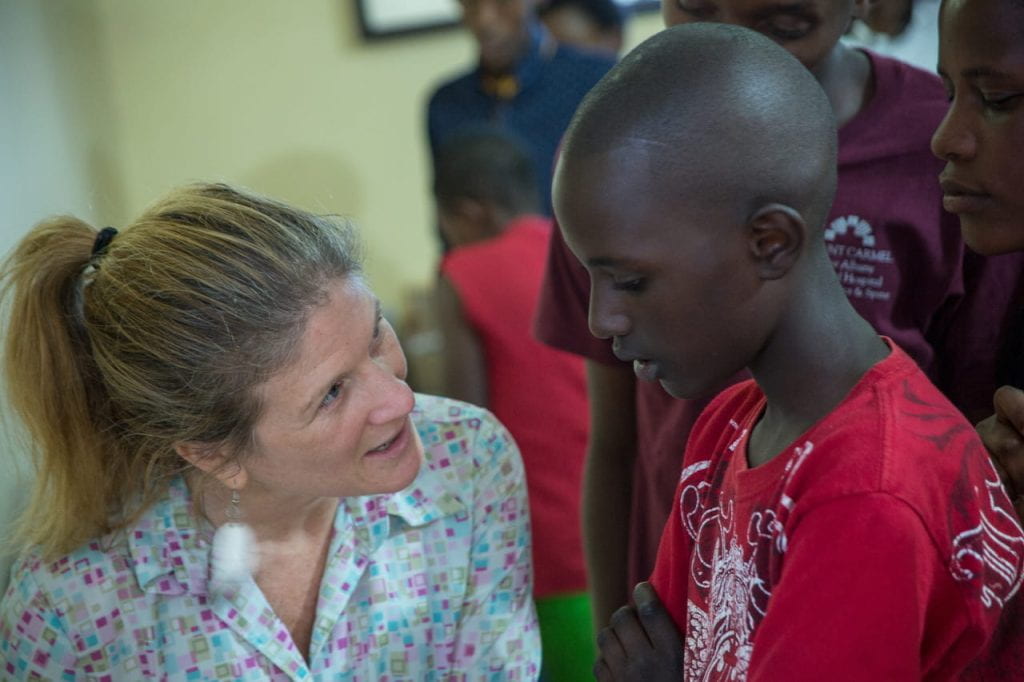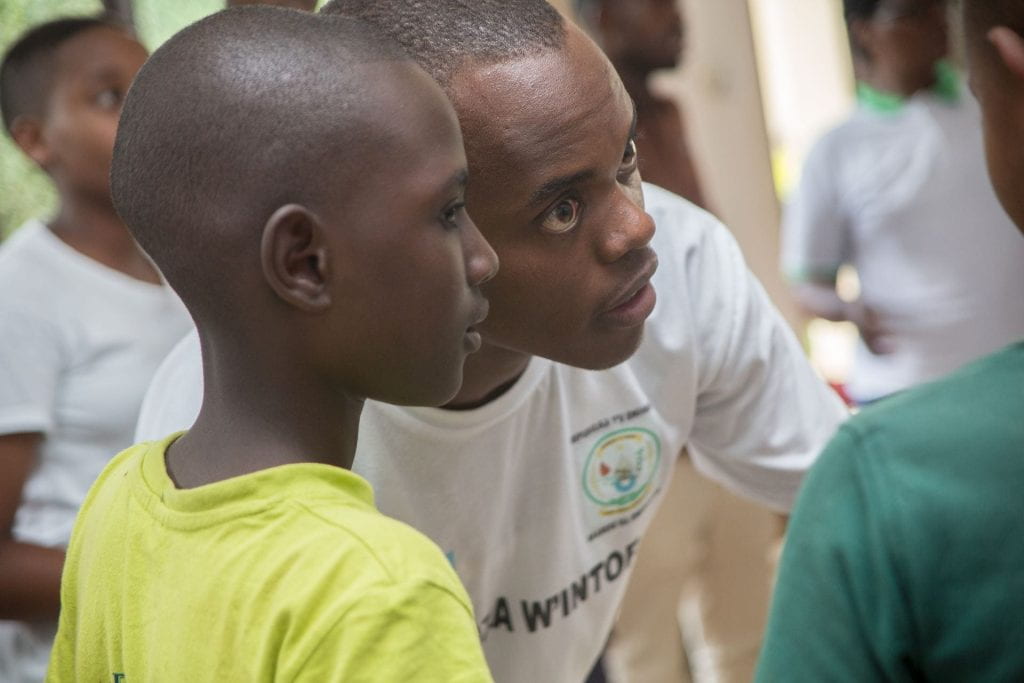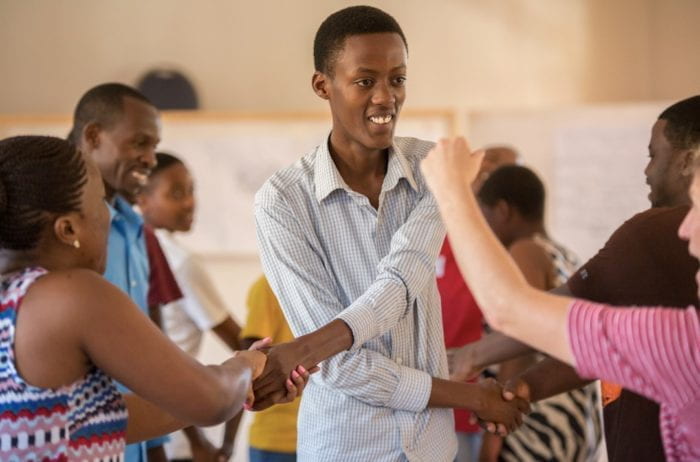Online Psychosocial Support through the Arts in Rwanda
In September 2020, the University of Lincoln received a GCRF / Newton Fund Agile COVID-19 Rapid Response Award to develop MAP at Home. MAP at Home is an 18-month sub-project of MAP Network Plus, which focuses on mental health support and community engagement in Rwanda during the COVID-19 pandemic.
The Covid-19 pandemic has had significant global ramifications. For example, global GDP in 2020 will contract by 5.2% (World Bank, 2020), and over 1.6 billion workers of the global workforce face the risk of losing their livelihoods (World Health Organisation, 2020).
For children and young people, the pandemic has had a significant impact on mental health and child rights. The International Labour Organisation (2020) has found that 50% of young people aged 18-29 are possibly subject to anxiety and depression. In addition to this, safety measures put in place by governments have exacerbated the ‘vulnerabilities of young people in accessing their human rights.’
The pandemic has exposed the delicate relationship between global, national, and local contexts, with individual countries developing their own strategies to counter the effects of Covid-19. As stated by the International Labour Organisation, the pandemic has exacerbated existing vulnerabilities, specifically psychosocial and mental health support.
In Rwanda, 38.3% of the population are not aware of where to seek support for mental health-related issues, and 94.7% of the population did not utilize mental health support, according to the Rwanda Mental Health Survey (Rwanda Biomedical Centre, 2018). Covid-19 has placed mental health support in Rwanda under enormous strain resulting in a scarcity of resources, high mental health nurse turnover, and an overburdening of community health workers (Louis, Ingabire, Isano, Eugene & Blanc, 2020).

MAP Co-Investigators in Rwanda on the MAP Network Plus project were in contact with the UK MAP team during the pandemic’s early stages. They described the detrimental effects that Covid-19 and its related measures were having on young people’s mental health. As a result of collaborative conversations and co-production with colleagues in Rwanda, the MAP at Home project was devised and awarded funding by the UKRI GCRF/Newton Fund Agile Response call to address COVID-19. The project was born from a collective desire to lessen the negative impacts of Covid-19 on young people’s mental health and explore how arts-based youth engagement can be extended in a digital and socially distanced manner. The research questions are as follows:
- How can arts-based approaches be translated to online platforms to enhance psychosocial well-being?
- What lessons can be learnt from the provision of online arts programmes for psychosocial well-being, especially regarding building resilience (individual and systemic) against future outbreaks or crises?
- How might MAP at Home advance digital innovation in the design and delivery of mental health provision and response services in Rwanda?
MAP at Home is collaborative and will be delivered by a MAP core management team in Rwanda and the UK. In Rwanda, MAP at Home will be led by Dr. Eric Ndushabandi (Institute of Research and Dialogue for Peace) and Chaste Uwihoreye (Uyisenga Ni Imanzi), alongside MAP Network Plus Co-Investigator and MAP at Home researcher Dr. Sylvestre Nzahabwanayo. In the UK, MAP at Home will be led by Professor Ananda Breed (University of Lincoln), Dr. Matthew Elliott (University of Lincoln), and Dr. Kirrily Pells (University College London).
By the completion of MAP at Home in March 2022, the project will have delivered the following: 12 online workshops; psychosocial module; stakeholder meetings; peer-reviewed journal article; monitoring and evaluation report; and a policy informing event. At present, the team is at the beginning of this journey and time has been predominantly focused on project setup, defining Kinyarwandan concepts, module development and identifying appropriate digital platforms.
To date, the MAP at Home team has focussed on numerous aspects of the project’s preliminary phase. Project setup has included weekly meetings with the MAP at Home team and has focussed on establishing project milestones, safeguarding protocol, the theory of change model and MAP at Home indicators. Alongside these activities, weekly meetings, and relevant literature reviews are taking place for the main areas of the project, including mental health in Rwanda, online arts practice and the societal effects of Covid-19. The project meetings’ dominant aim is to help define the frameworks in which the project will take place while ensuring debate, discussion, and consultation to ensure reflective research practice.
As with the broader MAP Network Plus project, MAP at Home strongly believes the definition of concepts and research themes should be determined by local context. Led by MAP Co-investigators Chaste Uwihoreye, Dr. Sylvestre Nzahabwanayo and Dr. Eric Ndushabandi, a workshop was held on Wednesday 11 November with psychosocial workers, MAP master trainers, and representatives from the Rwanda Biomedical Centre and Rwanda Education Board. The workshop aimed to discuss and define the following concepts in Kinyarwanda for MAP at Home: family, mental health, mental health wellness & mental health support. The research and findings of the workshop will be published in a future blog.
The MAP at Home psychosocial module is being developed by Professor Ananda Breed and Chaste Uwihoreye in collaboration with the MAP at Home core management team. This module aims to bring together the existing MAP methodology and psychosocial exercises. Kinyarwandan proverbs are also being integrated into the module as a valuable form of communication between psychosocial workers and young people. The module will be composed of 12 units, each unit with a different topic.


Dr. Fereshte Goshtasbpour (MAP Network Plus Co-Investigator) has begun exploring appropriate digital platforms for youth engagement with the psychosocial module. Early conversations have established the expensive nature of native apps and maintenance fees with alternative accessible platforms being discussed, such as WordPress. As demonstrated from previous research into online arts platforms, the project considers aspects of digital inclusion, safeguarding and feasibility of participation and interaction.
The MAP at Home project is a new development which addresses the challenges that Covid-19 presents to peacebuilding, youth arts practice and mental health provision. The project will be agile in its approach and work iteratively to provide regular research outcomes to address the pandemic’s immediate nature. The global pandemic has demanded local responses from researchers, practitioners, and young people. By using practice as research methodology, youth-led pedagogies and responsive practice, MAP at Home aims to develop a model of digital arts engagement that can promote mental health well-being and contribute to social change in Rwanda.
Ubwuzu enabled the creation of a Cultural Artist Network and Youth Advisory Board to inform the design, delivery and implementation of MAP.
